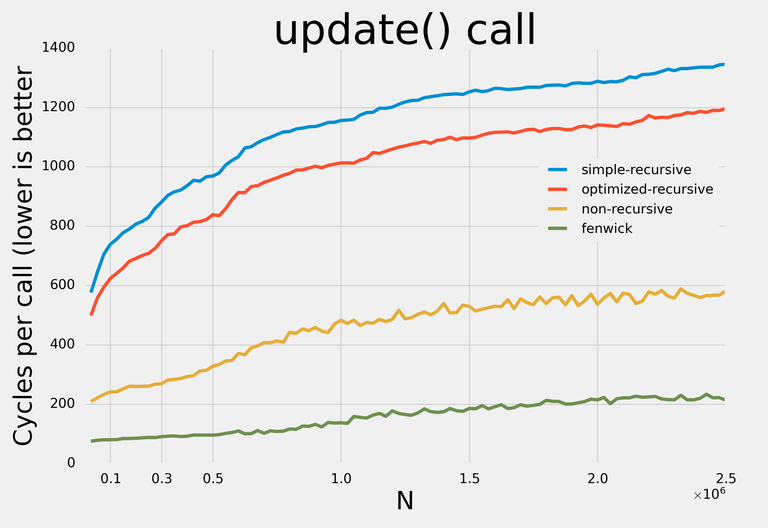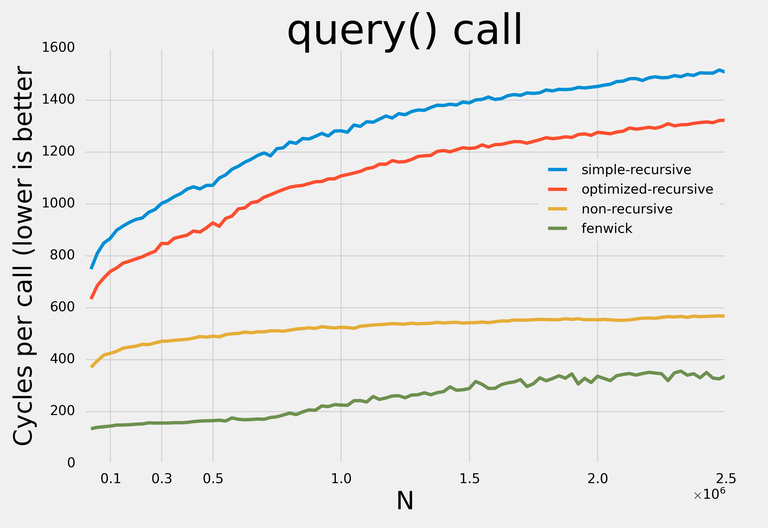Sometimes I wonder, what implementation of a segment tree to use. Usually, I handwave that some will suit, and that works in most of the cases.
But today I decided to back up the choice with some data and I ran benchmarks against 4 implementations:
- Simple recursive divide-and-conquer implementation Code
- Optimized recursive divide-and-conquer, which does not descend into apriori useless branches Code
- Non-recursive implementation (credits: https://mirror.codeforces.com/blog/entry/18051) Code
- Fenwick Tree Code
All implementations are able to:
-
get(l, r): get sum on a segment (half-interval) $$$[l; r)$$$ -
update(i, x): add $$$x$$$ to the element by index $$$i$$$
Here are the results: 

Note: I decided not to apply any addition-specific optimizations so that with minor modifications the data structures could be used for any supported operations.
I generated queries the following way:
- Update: generate random index (
rnd() % size) and number - Query: at first, generate random length (
rnd() % size + 1), then generate a left border for that length
Benchmarking source code. Note that ideally you should disable frequency scaling and close any applications that might disrupt the benchmark (basically, the more you close — the better).
My benchmarking data in case you want to do some more plotting/comparing.
I compiled the benchmark with #pragma GCC optimize("O3") on GNU GCC 11.3.0, and ran it with the CPU fixed on 2.4 GHz without the desktop environment open.
This is probably my first useful contribution so any suggestions/improvements are welcome.







